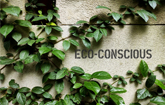SAN FRANCISCO, March 30, 2021 /PRNewswire/ -- A new report by the UN Environment Programme (UNEP) and Azul highlights the impact of plastic pollution on already vulnerable populations around the world, depriving them of their basic human rights, health, and well-being. The report, Neglected: Environmental Justice Impacts of Plastic Pollution, demonstrates how the entire life cycle of plastics -from source extraction to waste- disproportionately affects marginalized communities and poses obstacles to the full and timely achievement of the United Nations' 17 Sustainable Development Goals (SDGs.)
The report outlines recommendations to governments, consumers, businesses and nonprofit organizations to address the effects of plastic on vulnerable populations. These include the need to move towards an environmental conservation movement that prioritizes the needs of those disproportionately affected by pollution around the world.
"Plastic pollution is a social justice issue," says Marce Gutiérrez-Graudiņš, co-author and Founder and Executive Director of Azul. "Current efforts, limited to managing and decreasing plastic pollution, are inadequate to address the whole scope of problems plastic creates, especially the disparate impacts on communities affected by the harmful effects of plastic at every point from production to waste."
The environmental harm of plastic disproportionately impacts people living in vulnerable situations – including women, children, migrants, the poor, indigenous peoples, and persons with disabilities. For example, plastic pollution presents a challenge to both the No Poverty and Zero Hunger SDGs by threatening the livelihood of those who depend on marine resources for work, and by polluting seafood that people depend on for sustenance. Achieving SDG No.5 of Gender Equality in countries where waste picking is considered a woman's job will require addressing women's higher exposure to waste and sanitation issues, work-related injuries, and indirect health effects. In some cases, SDGs are affected by different stages in the plastic life cycle. This is evident from the extraction of fossil fuels, which are the primary materials from which plastic is made, and microplastic bioaccumulation in marine wildlife that interfere with SDG No. 14's aim to sustainably manage and protect marine ecosystems from pollution and address the impacts of ocean acidification.
"The impact of plastics on vulnerable populations goes well beyond inefficient and sometimes non-existing waste management systems," adds Juliano Calil, lead author of the report, Senior Research Fellow at the Center for the Blue Economy. "It starts with issues related to oil extraction, through toxic environments and greenhouse gas emissions, and it even impacts water distribution policies."
The report can be downloaded from this link.
About Azul
Azul is an environmental justice organization working with grassroots communities to protect coasts and the ocean.
About UNEP
UNEP is the leading global voice on the environment. It provides leadership and encourages partnership in caring for the environment by inspiring, informing and enabling nations and peoples to improve their quality of life without compromising that of future generations.
SOURCE Azul

Related Links
WANT YOUR COMPANY'S NEWS FEATURED ON PRNEWSWIRE.COM?
Newsrooms &
Influencers
Digital Media
Outlets
Journalists
Opted In




Share this article